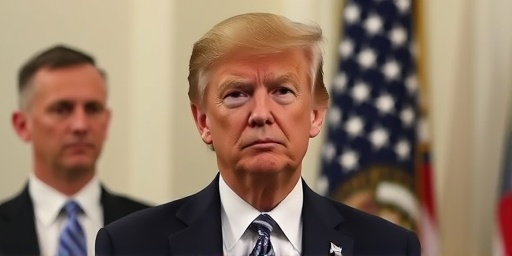In a bold escalation of partisan tensions, House Republicans have officially launched an Impeachment inquiry into Department of Homeland Security (DHS) Secretary Alejandro Mayorkas, accusing him of systemic failures in border policy that they claim have fueled a national crisis. The move, announced by GOP leaders on the House floor just weeks before the holiday season, promises to dominate congressional debates and could reshape the political landscape heading into the new year.
Sources close to the House Oversight Committee, which is spearheading the probe, revealed that the inquiry stems from allegations of Mayorkas’ deliberate disregard for immigration laws, leading to what Republicans describe as an unprecedented surge in illegal border crossings. With over 2.5 million encounters at the U.S.-Mexico border reported in fiscal year 2023 alone, according to U.S. Customs and Border Protection data, critics argue the DHS has been complicit in allowing chaos to unfold. House Speaker Mike Johnson, R-La., framed the announcement as a necessary step to hold the administration accountable, stating, “The American people deserve better than open borders and unchecked migration. This Impeachment inquiry is about restoring the rule of law.”
The timing of the inquiry, coming amid holiday preparations and just months before the 2024 elections, has already ignited fierce backlash from Democrats, who label it as nothing more than political theater designed to rally the Republican base. House Minority Leader Hakeem Jeffries, D-N.Y., fired back during a press briefing, calling the probe “a desperate distraction from real solutions to border security.” As the House prepares for what could be a protracted battle, the inquiry underscores deepening divides over immigration, a perennial flashpoint in American politics.
GOP Accusations Center on Border Policy Breakdowns
At the heart of the Impeachment push are Republicans’ pointed criticisms of DHS border policy under Mayorkas’ leadership. House Republicans, who regained control of the chamber in the 2022 midterms, have long vowed to scrutinize the Biden administration’s handling of immigration. The inquiry formally alleges that Mayorkas has willfully violated his oath by implementing policies that prioritize catch-and-release over enforcement, leading to what GOP lawmakers call a humanitarian and security catastrophe.
Key evidence cited in the announcement includes a staggering 300% increase in migrant encounters since President Biden took office, per DHS statistics. In September 2023 alone, border agents recorded more than 260,000 encounters, overwhelming resources and straining local communities in border states like Texas and Arizona. Republican leaders point to specific decisions, such as the expansion of parole programs for migrants from countries like Venezuela and Haiti, as exacerbating the influx. Rep. James Comer, R-Ky., chairman of the House Oversight Committee, highlighted in a statement: “Secretary Mayorkas has turned the border into a revolving door, endangering communities and undermining congressional intent on immigration reform.”
Further fueling the fire are reports of fentanyl smuggling tied to border crossings, with U.S. Customs and Border Protection seizing over 27,000 pounds of the deadly drug in the past year—enough to kill millions. Republicans argue that lax DHS oversight has enabled cartels to exploit vulnerabilities, linking border policy failures directly to the opioid crisis ravaging American suburbs and cities. Witnesses from border patrol unions have been subpoenaed for the inquiry, expected to testify on operational breakdowns, including staffing shortages that leave vast stretches of the border unsecured.
To illustrate the scale, consider Texas Governor Greg Abbott’s Operation Lone Star, which has deployed over 10,000 National Guard troops to the border at a cost of more than $4 billion to the state. GOP lawmakers reference this as a damning indictment of federal inaction, with Abbott himself tweeting support for the impeachment: “Time to impeach and remove Mayorkas for his dereliction of duty.” The inquiry’s scope will delve into internal DHS memos, potentially uncovering communications that Republicans believe show intentional policy sabotage.
Democrats Counter with Claims of Partisan Overreach
Democrats have swiftly mobilized against the impeachment inquiry, portraying it as a cynical ploy by House Republicans to score political points rather than address substantive issues. With the holidays approaching, the timing has drawn particular ire, as it coincides with families traveling and communities focusing on seasonal joys rather than Washington gridlock. House Democrats, holding a slim minority, argue that the probe distracts from bipartisan efforts to reform immigration laws, which have stalled in the Senate.
Senate Majority Leader Chuck Schumer, D-N.Y., dismissed the move during a floor speech, stating, “This is impeachment as theater, not governance. Republicans know they can’t pass real border security without us, so they’re resorting to showmanship.” Democratic leaders point to the Biden administration’s investments in border infrastructure—over $15 billion allocated in recent budgets for technology and personnel—as evidence of commitment. They also highlight record deportations under Mayorkas, exceeding 1.5 million in fiscal 2023, countering GOP narratives of total laxity.
Internal Democratic strategy sessions, according to sources, emphasize framing the inquiry as an abuse of power. Rep. Jamie Raskin, D-Md., the ranking member on the Oversight Committee, has vowed to expose what he calls “baseless accusations recycled from Trump-era talking points.” Democrats plan to introduce amendments and motions to delay or derail the probe, potentially tying it up in procedural battles that could extend into the new year. Public opinion polls, such as a recent Pew Research survey showing 60% of Americans favoring comprehensive immigration reform over enforcement-only approaches, bolster their argument that the inquiry ignores broader voter priorities.
Moreover, Democrats reference historical precedents where impeachment efforts against cabinet officials fizzled without Senate conviction, citing the failed attempts during the Trump administration. They warn that pursuing this path risks alienating moderate Republicans and independents, especially as economic concerns like inflation overshadow immigration in many districts.
Mayorkas’ Defense and DHS Internal Struggles Exposed
Secretary Mayorkas, a veteran of immigration law with decades in public service, has remained defiant in the face of the impeachment threat. In a DHS press release following the announcement, he reaffirmed the department’s dedication to secure borders while processing legitimate asylum claims, emphasizing the complexities of global migration driven by violence and poverty in Latin America. “We are working tirelessly within the law to protect our nation,” Mayorkas said, pointing to new initiatives like the CBP One app, which has facilitated over 500,000 appointments for migrants to present themselves at ports of entry legally.
Behind the scenes, the inquiry has laid bare internal DHS challenges. Leaked documents suggest bureaucratic infighting over resource allocation, with border security competing against cybersecurity and disaster response priorities. The department’s 2023 budget request of $25.9 billion for enforcement was partially funded, leading to criticisms of understaffing—only 19,000 Border Patrol agents for 2,000 miles of border. Experts like former DHS official Juliette Kayyem note that these strains predate Mayorkas, rooted in decades of congressional underfunding.
Interviews with current and former DHS employees paint a picture of exhaustion: agents working 12-hour shifts amid a 40% vacancy rate in some sectors. The impeachment probe could force the release of performance reviews and audit reports, potentially revealing how policy directives from the White House clashed with on-the-ground realities. Republicans aim to subpoena top aides, including Under Secretary for Strategy, Policy, and Plans Roberto Santos, to build their case.
Publicly, Mayorkas has engaged in a media blitz, appearing on networks like CNN to argue that the real crisis is a broken immigration system needing legislative fixes, not partisan witch hunts. His tenure, marked by navigating the aftermath of the 2021 border surge, has seen DHS pivot to regional partnerships, such as agreements with Mexico to curb migrant flows—efforts that reduced encounters by 50% in late 2023.
Broader Ramifications for Immigration Reform and 2024 Elections
As the impeachment inquiry unfolds, its ripples extend far beyond the Beltway, influencing national debates on border policy and testing the resilience of bipartisan cooperation. With the House Republicans holding a narrow majority, the probe’s success hinges on unifying their caucus, including moderates from districts with growing immigrant populations who may view it as overly aggressive. Failure to advance could embolden Democrats to push their own investigations into GOP-led states’ border measures.
Looking ahead, the inquiry sets the stage for high-stakes hearings in early 2024, potentially featuring expert testimony from think tanks like the Migration Policy Institute, which reports that U.S. border challenges mirror global trends affecting Europe and Australia. If the House votes to impeach—requiring a simple majority—the matter moves to the Senate, where conviction demands a two-thirds vote, an unlikely outcome given Democratic control. Legal scholars predict this could drag on for months, diverting resources from pressing issues like disaster aid post-hurricanes.
For the 2024 elections, the probe amplifies immigration as a wedge issue. Polling from Gallup indicates 55% of voters see border security as a top concern, pressuring both parties. Republicans hope to leverage it to flip Senate seats in swing states like Arizona and Nevada, while Democrats aim to reframe the narrative around humane reform, possibly tying it to Ukraine aid packages. Ultimately, the inquiry may catalyze stalled legislation, such as the bipartisan border bill that failed in 2023, forcing Congress to confront whether impeachment yields results or merely deepens divides.
In the coming weeks, as holiday lights twinkle and families gather, the shadow of this political showdown looms large, reminding Americans that the border’s fate—and the nation’s security—remains fiercely contested terrain.








